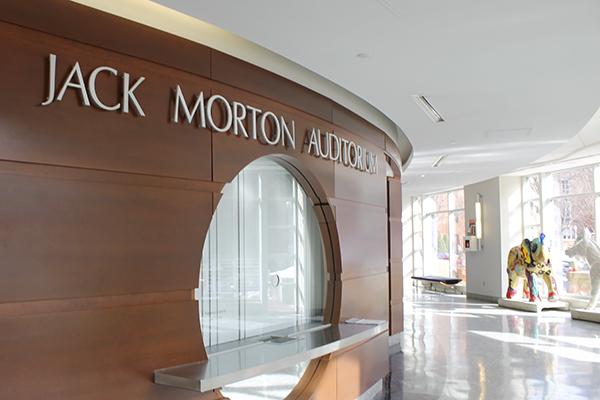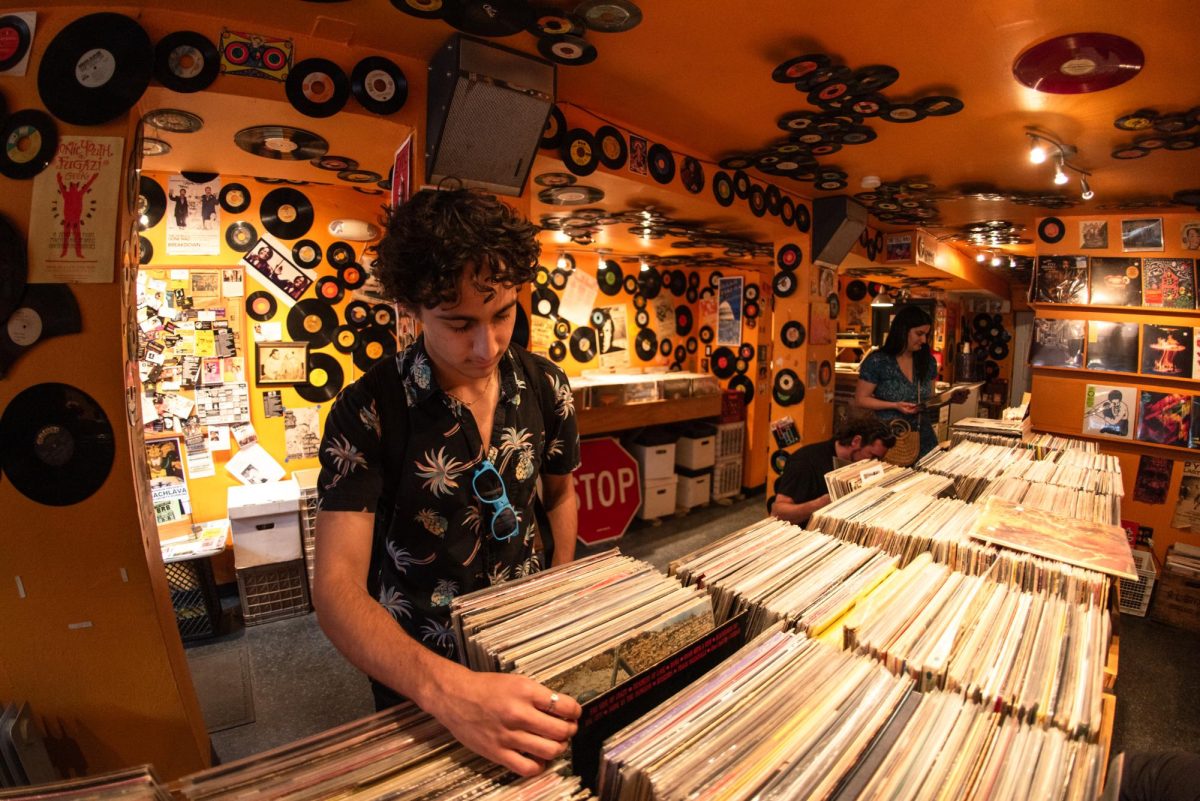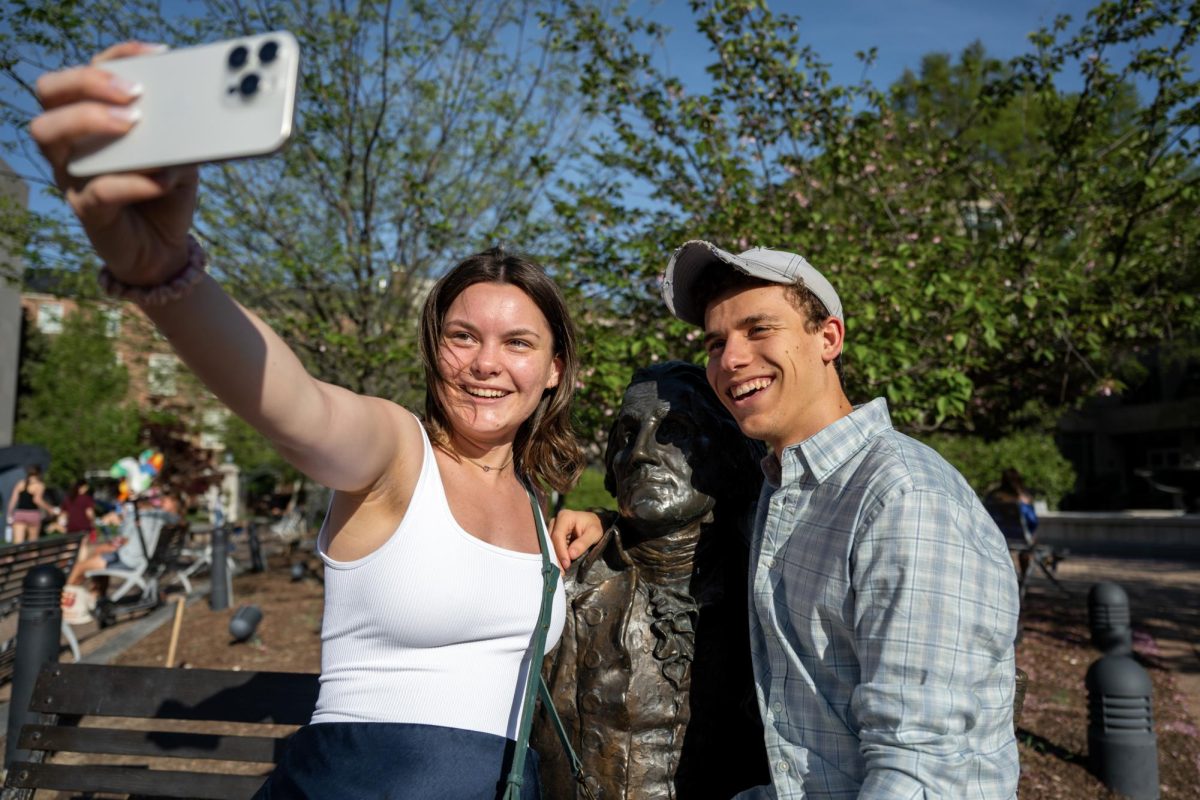Charles Manson, a convicted criminal who had a cult following during the Summer of Love, isn’t exactly a D.C. cultural figure.
But “House of Manson,” a movie about his gory antics directed by Brandon Slagle, is one of the most anticipated films at the D.C. Independent Film Festival.
DCIFF, which began Sunday, has brought unconventional flicks to the District for a week of workshops and special events since 1999. Attendees can mingle as well as participate in Q&As with directors, producers and cast members after film screenings.
Most screenings and programs will be held at the Naval Heritage Center, but on Thursday, “The Secret Life of Uri Geller – Psychic Spy?” and “The Other Barrio” will be shown at Jack Morton Auditorium in partnership with the GW Documentary Center.
Caroline Jacobs, the festival’s filmmaker relations coordinator, said independent films like “House of Manson” would be difficult to screen at the average theater because of their rawness.
“Whether one of the films is just a low-budget enterprise, or it’s too politically controversial to be shown in a movie theater, the festival does a great job of making sure it covers all avenues which make a film indie,” Jacobs said.
The festival is not District-centric: “Omo Child: The River and the Bush,” is a documentary filmed in Ethiopia, and “Call Me Cappy” is a short film set on a Caribbean cruise.
But DCIFF explores city issues in works like “Southeast67,” a documentary about a wealthy businessman who, in the face of a heightened violence during the crack cocaine epidemic of the 1980s, promised college scholarships to seventh graders.
DCIFF will also blend indies with D.C. political culture at its annual “On The Hill” panel. This year’s topic – “Lights! Drones! Action!” – focuses on how regulation of drones will impact film production. Panelists include Rep. Brad Sherman, D-Calif., and Roger Connor, a curator at the National Air and Space Museum and an expert in unmanned aerial systems.
Overall, the week is dedicated to films with an unapologetic attitude, which trade the glossy Hollywood aesthetic for something quirkier, more challenging and cheaper to produce.
David Wilt, a professorial lecturer in film studies at GW, said DCIFF and festivals like it are a rare chance for movie lovers to see films that stray from formulaic genres like romantic comedy or drama.
“Sexuality, religion and politics are big [niche genres] as well as narrow racial, ethnic and social topics,” Wilt said. “Some of these aren’t controversial per se – they simply appeal only to a relatively small group of people.”
Free from the pressure of profit-driven film production and interest groups, indie filmmakers at DCIFF can make atypical points or ask controversial questions, he said.
“Personal opinions about politics aren’t really restricted,” Wilt said. “While mainstream Hollywood cinema has to carefully calculate the degree of risk versus the investment made, indie films don’t necessarily have the same mindset.”
Film as a forum for cultural debate isn’t such a radical concept, but one of DCIFF producers, Hayes Gifford, said he believes indie films do a better job of shedding light on topical issues than other forms of discourse.
“When these really in-depth, or complex issues are talked about in a movie rather than some [televised] debate, the average person is more likely to pay attention,” Gifford said. “If films [don’t] raise these kinds of issues in the community, people just [won’t] know about them.”
But the films aren’t all bogged down in polarizing dialogue: One of the week’s must-sees is “Blood, Sweat and Beer,” a documentary that follows the journey of a few 23-year-old entrepreneurs struggling to open a craft brewery in rural Pennsylvania. In another film, “Wildlike,” an odd duo backpacks across Alaska.
Individual events and screenings cost between $5 and $25. An all-access pass costs $140, a two-day weekend pass costs $90 and a one-day pass costs $45. All passes include two drink tickets for beer, wine and soda.







